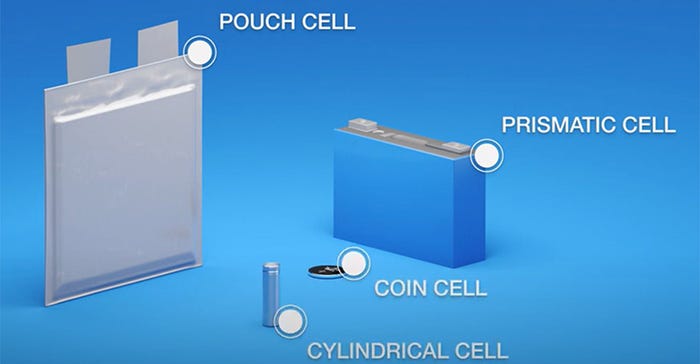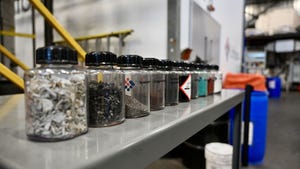INFICON’s ELT3000 PLUS system enables fully automated, high-speed, in-line battery cell leak testing.
May 2, 2023
INFICON has announced the release of its new electrolyte leak detector–the ELT3000 PLUS. Built on the technology of the former ELT3000, the ELT3000 PLUS incorporates innovations that make it especially well-suited for in-line leak testing of lithium-ion battery cells with high throughput, as well as heightening quality assurance metrics.
The new ELT3000 PLUS is specifically designed for leak testing ready-filled lithium-ion and sodium-ion battery cells by direct detection of electrolyte solvent leaking into a vacuum chamber. INFICON’s innovative leak-testing method identifies leaks with all cell formats, from cells with rigid cases, including prismatic, round, or button cells, or soft pouch cells. Testing systems can be designed to operate at the battery cell manufacturer’s line speed to keep pace with cell production.
In addition to the manual operating mode, INFICON’s ELT3000 PLUS is equipped with an automatic in-line leak detection mode, which is optimized for short cycle times and high throughput in series production. Powerful vacuum pumps in combination with multiple chambers served by just one ELT3000 PLUS and a batch testing approach add to a time-savings and high-speed, in-line testing process.
First with solvent detection
INFICON was the first to offer a leak detection product that directly detects leaking electrolyte solvents. Capable of testing leaks that are a few micrometers in diameter with a leak test rate of 5. 10-7 mbar.I/s (helium equivalent leak rate), the ELT3000 PLUS is in a class by itself. It consistently and reliably detects microleaks.
Leak testing is imperative for battery cell safety and to protect cell energy capacity, durability, and longevity. If water, or even humidity, mixes with an electrolyte, no matter how small the amount, it creates an increased risk of battery failure, fire, and costly recalls.
“The mobility industry is moving at lightning speed to stay ahead of the next innovation in vehicle electrification,” stated Thomas Parker, North American automotive market sales manager, INFICON. “They don’t want to slow down to create another step in the manufacturing process, especially for perceived non-value-added processes such as leak testing. With its high throughput and accuracy, integrating the ELT3000 PLUS into the production line will add only seconds to cell production and it can save millions in costly recalls from malfunctioning lithium-ion battery cells.”
Simultaneous testing of multiple cells
The ELT3000 PLUS can be fully integrated into a series production line. With several test chambers connected to just one ELT3000 PLUS, it enables simultaneous testing of multiple cells, saving time by increasing throughput and significantly accelerating cycle time. The customized test chambers for the ELT3000 PLUS are designed for optimal fit to the actual battery cell format to handle any lithium-ion battery cell type, and can fit different sizes, as well as cells with hard or soft outer layers. The ELT3000 PLUS can be set to detect many different electrolytes, eliminating the need to purchase other machines or system updates to accomplish this.

With its automatic calibration feature, the ELT3000 PLUS makes it possible–in only 30 seconds–to ensure the system is producing highly accurate, reliable, and repeatable measurements of electrolyte leakage. All test data can be exported in real time and migrated to each plant’s quality system, which ensures the accuracy of important quality assurance programs and metrics.
“The ELT3000 PLUS operates to ISO standards and can easily integrate into a lithium-ion battery cell production line,” stated Parker. “Adding it to production lines makes good business sense. While battery cell manufacturers are hustling hard to meet the demands of the mobility industry, they can do it with a testing system they know produces reliable and repeatable results, down to the micrometer level, and saves time and costs with increased throughput and characteristic INFICON excellence.”
About the Author(s)
You May Also Like





